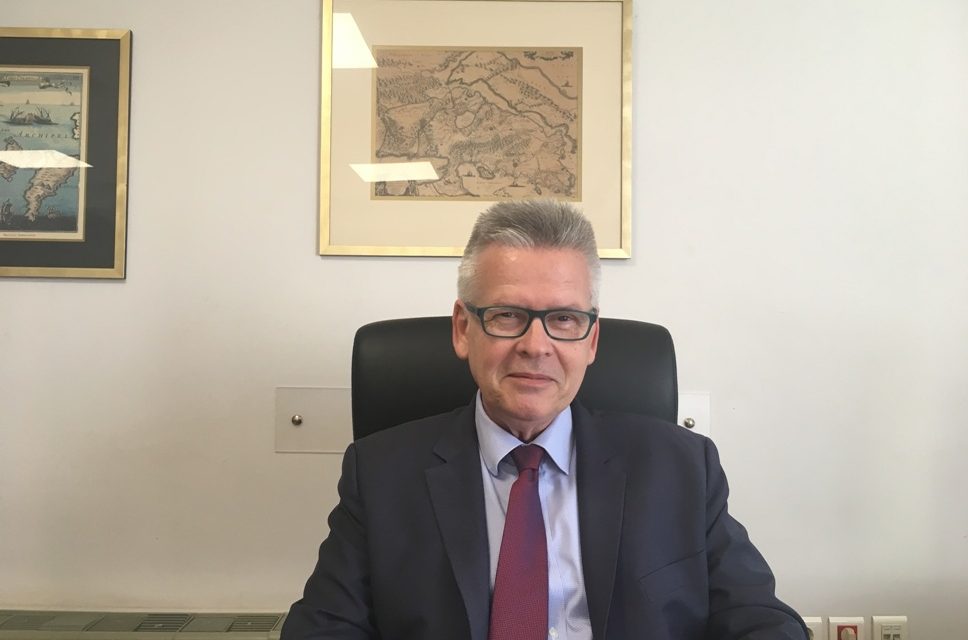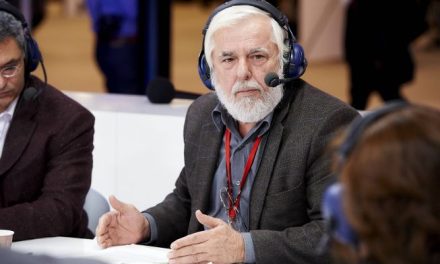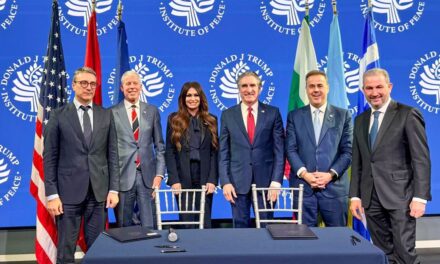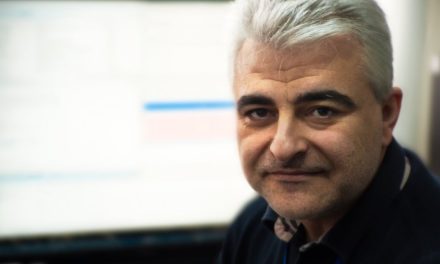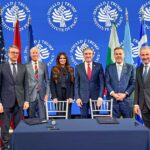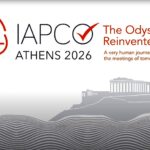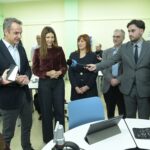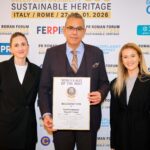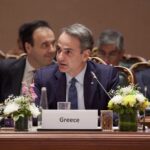Public diplomacy is a widely and frequently used term that “has been defined so many times over the years by different actors in different nations, that it is difficult, if not impossible, to establish a singular definition which reflects the broad array of interests and practices associated with it”[1]. The term “public diplomacy” was coined in 1965 by Edmund Gullion, Dean of the Edward Murrow Center of Public Diplomacy at the Fletcher School of Law and Diplomacy at Tufts University[2]. Gullion, who believed that journalists and diplomats had much in common, defined Public Diplomacy as “dealing with the influence of public attitudes on the formation and execution of foreign policies”, which was further defined as “using modern instruments and techniques of communication to inform large or influential segments of national populations that may even motivate them to a particular course of action”[3]. In other words, Public Diplomacy’s ultimate aim is to gather international support for a nation’s foreign policy[4].
According to academics and observers in the business of government communication, globalization and a new media landscape have challenged traditional foreign ministry “gatekeeper” structures, and foreign ministries can no longer lay claim to being sole or dominant actors in communicating foreign policy[5]. As Melissen argues, the world in which public diplomacy was considered as one of the leftovers of diplomatic dialogue is rapidly disappearing. So is the world in which public diplomacy can easily be dismissed as an attempt at manipulation of foreign publics”[6]. The difference between public and traditional diplomacy is that public diplomacy involves a much broader group of people on both sides, and a broader set of interests that go beyond those of the government of the day[7]. In the course of time, Public Diplomacy has been gradually identified as a more democratic synonym of nation branding in the sense that it involves a two way model of communication.
What is the case with Greece and how is Public Diplomacy carried out and by what actors? Greece may be one of a few countries that has a highly specialized sector of Public Diplomacy officials, that of Press Officers. Press Officers occupy that space between diplomacy and journalism and work together with a variety of actors, using a wide spectrum of communication techniques to inform international public opinion about Greece. In their vast majority, they are graduates of the Department of Press Officers of the National School of Public Administration and Local Government (NSPALG). Based on the model of the French ENA, the NSPALG provides Public Administration with officials highly trained to competently deal with the arising needs of Public Administration and the country in general. The NSPALG accepts University graduates who have successfully passed its entrance examinations that are implemented by an independent Central Examination Committee.
Greek News Agenda interviewed* Panagiotis Agrafiotis, Director of the Media Diplomacy Department at the Secretariat General for Media and Communication (SGMC), on the way Public Diplomacy is exercised by Press Officers. Panagiotis Agrafiotis has studied political science and international law in Athens and Paris, is a graduate of the National School of Public Administration and has served as Press Counsellor and Spokesperson at various Greek Embassies and Permanent Representations in Belgium, France, Cyprus and Turkey. He has also served as Cultural attaché at the Ministry of Culture. The Secretariat General for Media and Communication of the Ministry of Digital Policy, Telecommunications and Information is responsible for the strategic planning and implementation of the National Communication Policy.

If we define public diplomacy as building relationships, understanding the needs of other countries, cultures and peoples, communicating our points of view, correcting misperceptions, looking for areas where we can find common cause[8], which are the competent authorities for the exercise of public diplomacy and how it is exercised;
I agree with the aforementioned definition, because it approaches public diplomacy as a two-way process that puts emphasis on dialogue and understanding the other side. The competent entity for the exercise of Public Diplomacy is the Secretariat General for Media and Communication, which is responsible for our National Communication policy strategic planning and realization. It aims at efficiently managing Government communication with international public opinion, promoting Greece’s image and positions abroad and offering information to the public. Communication diplomacy is a specific area of national communication policy and public diplomacy is a component of communication diplomacy
The officials responsible for the implementation of Public Diplomacy are the Press Officers, who are trained at the National School of Public Administration and Local Government and who practice it throughout the course of their careers. Two Departments of the General Secretariat are in charge both for reactive responses that help world media inform the international public about developments in Greece, as well as proactive actions with the same goal.
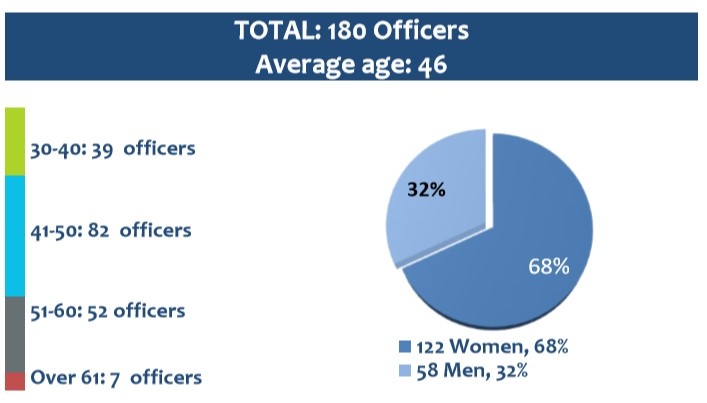
As far as reactive action is concerned, our Department provides information material and facilitates foreign media for filming and photography in the production of documentaries and reports of informative, tourist, scientific and cultural content about Greece. It also assists requests for interviews with government officials and other official bodies. Allow me to point out here, for example, that in the last three years we have handled and successfully completed approximately 1,504 such requests from international media.
I should also mention that the Secretariat General is always the organizing force in major media events, facilitating for example the work of international media by setting up Press Centres where necessary, as was the case with the signing of the Prespes Agreement (12/06/2018). It also coordinates and facilitates the work of foreign journalists covering visits by foreign leaders in Greece, and where appropriate, Press Centres are set up in the framework of these visits. From 2015 to the present, we have dealt with over 50 such visits.
The SGMC also deals with the accreditation of foreign correspondents and the manifold inquiries and requests by international media in relation to the refugee crisis. Since 2015, a special Department of the SGMC has processed 2444 requests by international media to cover the refugee crisis (entry to refugee centres, interviews with competent authorities etc.). Moreover, we are involved in the organization of International Conferences on issues related to competencies of the Secretariat General for Media and Communication (GSMC) of the Ministry of Digital Policy, Telecommunications and Information, in the framework of the interconnection of academic knowledge (technological developments and theory) with action in the field of Media and the co-organization of events with Foreign Embassies in Greece.
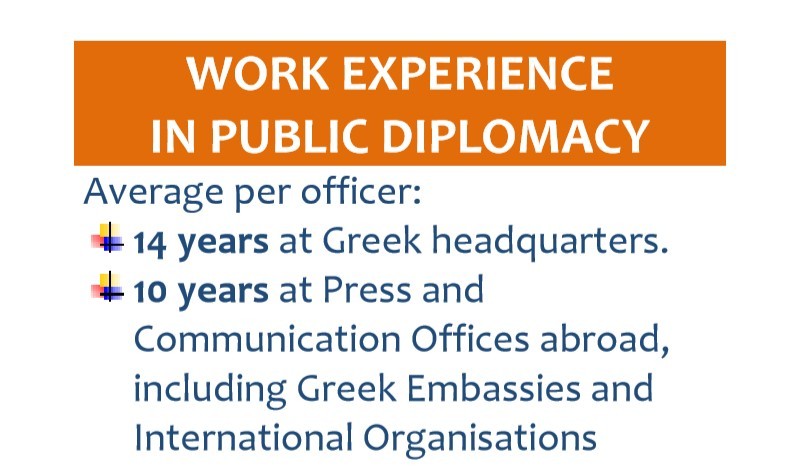 As for proactive public diplomacy, the five foreign language platforms of the SGMC (Greek News Agenda, Griechenland Aktuell, Grèce Hebdo, Panorama Griego, Punto Grecia) targeting English, German, French, Spanish and Italian speaking readers, provide diverse original source material informing international public opinion on aspects of contemporary Greece. The aim is to shed light on the different aspects of a modern country that during a tense period creates, analyses, reviews and develops its national narrative.
As for proactive public diplomacy, the five foreign language platforms of the SGMC (Greek News Agenda, Griechenland Aktuell, Grèce Hebdo, Panorama Griego, Punto Grecia) targeting English, German, French, Spanish and Italian speaking readers, provide diverse original source material informing international public opinion on aspects of contemporary Greece. The aim is to shed light on the different aspects of a modern country that during a tense period creates, analyses, reviews and develops its national narrative.
These sites are not intended to become platforms promoting an idealized picture of Greece or reproducing one-dimensional stereotypes, but to be part of an open dialogue in regard to a country that has been at the centre of multiple global crises (economy, unemployment, refugees) and to highlight developments in politics, the economy and culture, as well as contradictions, potentials and weaknesses in an ever-changing international environment.
Through interviews with figures from the fields of politics, the arts and sciences, a more analytical approach towards contemporary Greece and its position in the world is attempted. At the same time, these five platforms aim at balancing reports and viewpoints so as to increase value and credibility to their content and add critical thought in an ongoing effort towards understanding and discussing better our differences and convergences by avoiding easy stereotypes and generalizations, in this rapidly changing world.
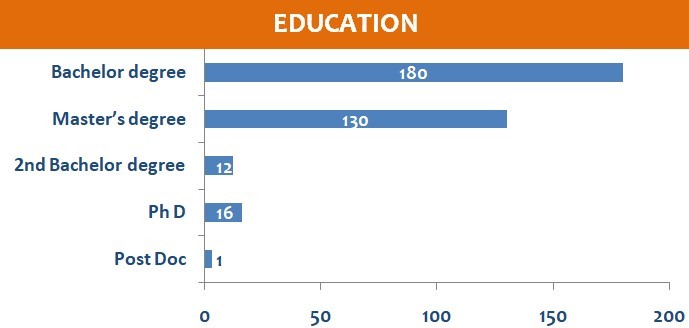 Press and Communications Offices abroad
Press and Communications Offices abroad
Our most dynamic instrument in the exercise of public diplomacy is our 25 Press and Communications Offices abroad which operate mostly within and in direct collaboration with Greek Embassies. Their responsibilities are manifold and focus on communicating to the public factual, reliable and objective information on matters concerning Greece and policy positions, through traditional and social media as well as public events, but also on making Greece visible and intelligible to the world, promoting the country’s image. To this effect, they engage with local, national and international media, academics, think tanks, artists and other influencers.
Press and Communication Offices serve as a primary information link between Greece and local media, opinion leaders and the general public. They handle media enquiries and interview requests, and they inform public opinion on political, economic, social and cultural developments in Greece using a variety of instruments and methods ranging from personal contact and media interviews, press releases and articles, speaking engagements and participation in public events.
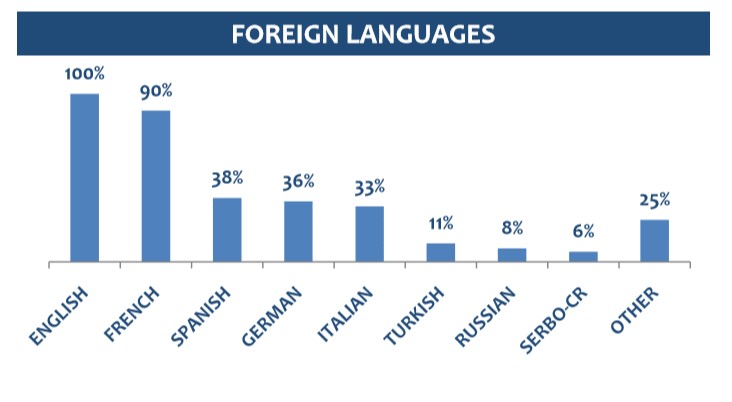 Our offices also inform our Embassy as well as the Secretariat General of Media and Communication on all matters of Greek interest in the country of accreditation, including the impact of Greece’s foreign and domestic policy on local media and public opinion, as well as on all important political, economic, social and cultural developments. This task is performed daily with comprehensive press reviews and aims to bringing closer to home views, opinions and positions of the country of accreditation.
Our offices also inform our Embassy as well as the Secretariat General of Media and Communication on all matters of Greek interest in the country of accreditation, including the impact of Greece’s foreign and domestic policy on local media and public opinion, as well as on all important political, economic, social and cultural developments. This task is performed daily with comprehensive press reviews and aims to bringing closer to home views, opinions and positions of the country of accreditation.
The development and cultivation of media relations is thus central to the task of furthering Greece’s image and policies abroad, and our officers work closely and consistently with the media, arrange press conferences for the Ambassador, prepare interviews for visiting officials etc.
Our offices also liaise and work with local Greek community organizations and media as well as Greek media correspondents. They are also tasked with assisting the mission of Greek media accompanying on official visits the President of the Hellenic Republic, the Prime Minister, the Speaker of the House, Cabinet members, party leaders and deputies, Greek members of the European Parliament, as well as facilitating visitor contacts with the media, organizing press centres and conferences.
Within the framework of their duties, our officers are also responsible for representing Greece at various institutes and organizations, developing and liaising with representatives and members of non-governmental organizations and political parties, as well as think tanks and other educational, cultural, economic and research entities.
Moreover, our offices are responsible for the organization, or co-organization with other entities, of media, scientific and cultural events focusing on topical issues, politics, economics, culture, tourism, gastronomy, science, etc. In several instances, these take place on the occasion of a major event, tribute year etc. As regards cultural events, emphasis is laid on the promotion of contemporary artistic production (including Greek cinema, the contemporary music scene, new Greek writers), without of course overlooking Greek cultural heritage as a whole. Last year, Greek Press Offices organized over 110 such events.
In the context of achieving a better understanding between Greece and the country of accreditation, our officers draw up reports, analyses, briefings, press reviews, and respond to media reports with letters to the editor in order to clarify Greek positions and correct misperceptions. Press offices file some 10,000 reports and briefings.
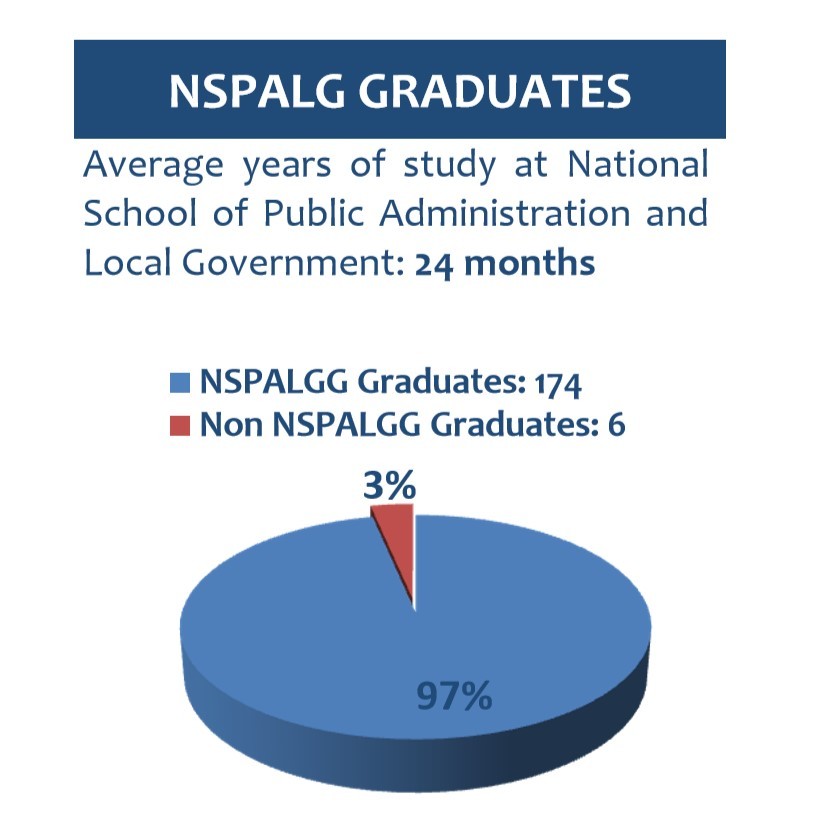 Why are Press Offices necessary in the age of internet and modern technologies? Wouldn’t a simple subscription to online newspaper editions suffice for an understanding of international public opinion towards Greece?
Why are Press Offices necessary in the age of internet and modern technologies? Wouldn’t a simple subscription to online newspaper editions suffice for an understanding of international public opinion towards Greece?
The Ministry is naturally a subscriber to main foreign language media publications but I can assure you that no matter the progress of technology, it cannot replace the work of a Press Officer. As you can see from what we’ve discussed, and which represents only a sample of a press officer’s public diplomacy duties, it is a hands-on, full-time job, requiring the committed attention and skills of professionals. Public Diplomacy cannot be performed from a distance; it requires interpersonal communication with a series of actors such as those mentioned above in order to secure an open channel of communication.
The personal presence of a press officer also means familiarity with the political atmosphere and general climate in which public communication takes place, which places him or her in a better position to assess the content of this communication
 What is the role of Social Media Networks in Public Diplomacy?
What is the role of Social Media Networks in Public Diplomacy?
It goes without saying that Social Media Networks have become part of communication day-to-day practice, and it should be noted here that it was Press Offices that set up Embassy Facebook and Twitter accounts. Moreover, during the 2014 Greek Presidency, the Secretariat General for Media and Communication, in cooperation with the Ministry of Foreign Affairs, conducted the entire Presidency’s communication and it social media accounts had accumulated the most followers as compared to previous Presidencies; and all using our resources, without any additional financial burden.
Coming to the present, I should mention that our Public Diplomacy officers are continuously developing their methodology and techniques, and in this context all Press Offices have their own social networking pages, and the same applies to the foreign language platforms I mentioned above.
At the same time, our officers manage the Ministry of Digital Policy, Telecommunication & Information Facebook account @MinDigitalGr), as well as its Twitter account (https://twitter.com/MinDigitalGr). They also manage the Secretariat General for Media & Communication Facebook (@mediagovgr) and twitter (https://twitter.com/mediagovgr @MediaGovGr), account.
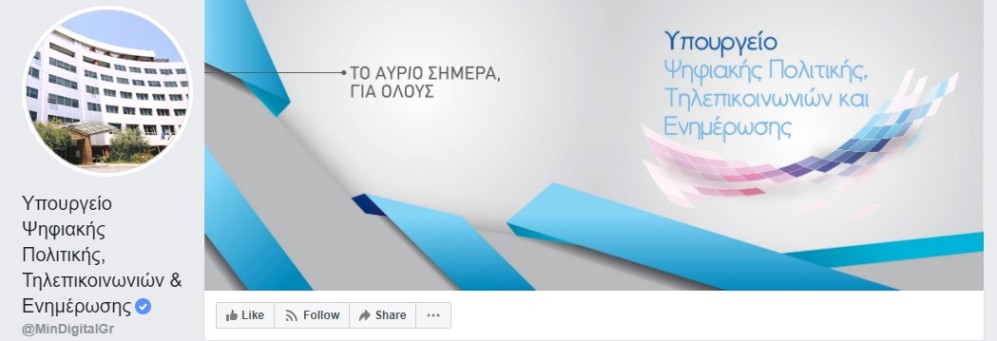 After the multiple challenges Greece faced in recent years, what is the importance of communication at a time when almost everything is determined by the economy?
After the multiple challenges Greece faced in recent years, what is the importance of communication at a time when almost everything is determined by the economy?
And who said it’s not vice versa? To make myself clearer, let us take for example the period of Greece’s negotiations with its creditors and the role of prestigious international Media in creating a psychological climate that to a degree bore an influence on economic decisions, as Serge Halimi, editorial director of Le Monde Diplomatique, noted at an event organized by the Secretariat General. I shall not go into this huge area of study on the relationship between communication and the economy, but I want to emphasize the importance of the communication sector as technological developments have made mediated communication increasingly influencial.
In conclusion, we should highlight the role played by Public Communication officers. They are certainly not miracle workers nor are they intended to be. However, a sector with such specialized knowledge and years of experience can only be an important tool in promoting Greece’s image abroad but also a means of honest and reliable communication with international audiences in the framework of an open and democratic model of Public Diplomacy.
* Interview by Florentia Kiortsi, charts by Analysis Department.
[1] James Pamment, “New public diplomacy in the 21st century: a comparative study of policy and practice”, Rouledge, Taylor &Francis, London, NY, 2013, p. 6.
[2] Guy J. Golan, Sung – Un Yang, Denis F. Kinsey, ‘International Public relations and Public Diplomacy: Communication and engagement, Peter Lang, NY, 2015, p. 1.
[3] Pamment, ibid, p. 6-7.
[4] Guy J. Golan, Sung – Un Yang, Denis F. Kinsey, ibid, p. 3
[5] James Pamment, ibid, p. 3
[6] Jan Melissen (ed.), “The New Public Diplomacy: Soft power in international relations”, Palgrave, Great Britain, 2005, p. 11.
[7] Mark Leonard et. al., “Public Diplomacy”, The Foreign Policy centre, NY, 2002, p. 8-9.
[8] Ibid, p. 8

